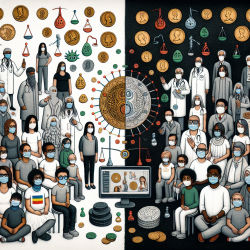Introduction
In the pursuit of sustainable development, educational practitioners are increasingly called to integrate ethical considerations into their curricula and practices. The research article "African Environmental Ethics: Keys to Sustainable Development Through Agroecological Villages" provides a compelling framework for this integration, rooted in African environmental ethics. This blog explores how educators and practitioners can enhance their skills by adopting the principles and outcomes of this research.
Understanding African Environmental Ethics
African environmental ethics, as outlined in the research, draws from a rich tapestry of communal values and sustainable practices. It emphasizes the interconnectedness of humans, other living organisms, and the environment. This ethical framework challenges the notion that only scientists or philosophers can make ethical pronouncements, advocating instead for a collective approach that includes all community stakeholders.
Implementing Agroecological Models
The Songhaï Centers, developed by Nigerian philosopher Godfrey Nzamujo, exemplify the practical application of African environmental ethics. These centers promote sustainability through advanced agroecological practices and information communication technologies. Educators can draw inspiration from this model by incorporating similar principles into their teaching and community engagement efforts.
Educational Implications
Practitioners can improve their skills by:
- Integrating ethical discussions into science and humanities curricula, emphasizing the role of ethics in addressing environmental challenges.
- Encouraging students to engage in community-based projects that apply agroecological principles, fostering a hands-on understanding of sustainability.
- Utilizing technology to connect students with global networks focused on sustainable development, broadening their perspectives and resources.
Encouraging Further Research
To advance their understanding and application of these concepts, practitioners are encouraged to conduct further research into African environmental ethics and agroecological practices. Engaging with the original research article and related literature can provide deeper insights and innovative ideas for educational practice.
Conclusion
By integrating African environmental ethics into educational practices, practitioners can contribute to sustainable development and prepare students to address the environmental challenges of the future. This approach not only enriches the educational experience but also fosters a sense of responsibility and empowerment among learners.
To read the original research paper, please follow this link: African Environmental Ethics: Keys to Sustainable Development Through Agroecological Villages.










